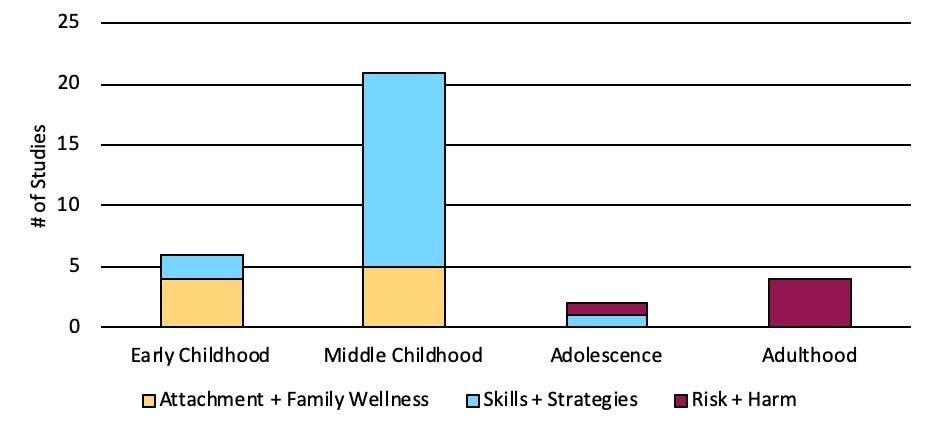This week, a team of researchers and partners published findings that show a startling gap in the evidence about treatment for mental health and substance use challenges for people with Fetal Alcohol Spectrum Disorder (FASD).

FASD is a lifelong disability impacting the brain and body of people exposed to alcohol in the womb. Mental health and substance use needs are an important consideration in this population, as over 90% of people with FASD are estimated to experience challenges with mental health, and an estimated 35-55% of adolescents and adults experience problematic substance use.
The team - made up of researchers and partners from the Canada FASD Research Network (CanFASD) - reviewed literature on mental health and substance use treatments for people with FASD. Of more than 10,000 titles reviewed, they found only three studies where researchers studied the impacts of interventions directly targeting the mental health or substance use needs of people with FASD.
None of the studies identified in the review explored how to best support people with FASD who are experiencing severe mental illness or acute mental health or addictions crises, and very few were designed for adolescents or adults. Instead, most of the studies were designed to build functional skills among children with FASD, with improved mental health as an indirect by-product of treatment.
“This study reveals a huge gap in evidence-based practice for supporting mental health and substance use needs of people with FASD,” says Dr. Katherine Flannigan, one of the study authors. “Without solid data about what treatments work, or how traditional treatments may be modified, we really can’t say how best to support this group in these areas.”
Although it is possible that clinicians and other service providers on the front-lines are providing effective mental health and substance use supports for people with FASD, there is next to no research published that looks into the impact of these efforts.
This research gives us a great starting point to build upon in the future, but we need to know more about how to address the immediate challenges that people with FASD face in mental health and substance use today.”
Dr. Katherine Flannigan, Study author
The hope is with more understanding will come more action - action that will improve FASD prevention, intervention, and diagnosis in Canada.”
Audrey McFarlane, CanFASD Executive Director
Source:
Journal reference:
Flannigan, K., et al. (2020) A Systematic Review of Interventions to Improve Mental Health and Substance Use Outcomes for Individuals with Prenatal Alcohol Exposure and Fetal Alcohol Spectrum Disorder. Alcoholism: Clinical & Experimental Research. doi.org/10.1111/acer.14490.